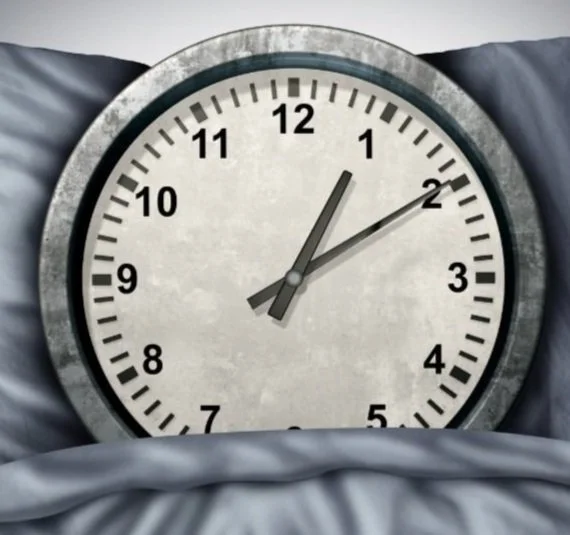National Introverts Week: Understanding Temperament and Recovery
What Is National Introverts Week?
Observed from March 17–23, National Introverts Week is a time to challenge misconceptions about introversion and celebrate the strengths of those who recharge through solitude. Founded by Matthew Pollard, author of The Introvert’s Edge, this week recognizes the value of introverts in a world that often prioritizes extroversion.
For professionals in substance use recovery, understanding temperament is essential. Recovery isn’t just about abstaining from alcohol—it’s about managing energy, stress, and personal resources effectively. Whether you lean toward introversion or extroversion, your personality significantly impacts your recovery strategy, support system, and relapse prevention plan.
Introversion, Extroversion, and the Science of Energy Management
The introversion-extroversion spectrum, first introduced by Carl Jung in 1921, describes how individuals direct and restore their energy.
Introverts recharge by spending time alone and focusing inward.
Extroverts gain energy from social interaction and external engagement.
Most people exist on a spectrum, displaying a mix of both traits depending on their environment and needs.
Why Energy Management Matters in Recovery
Recovery demands emotional resilience, stress regulation, and effective coping mechanisms. Many traditional recovery models emphasize social connection, such as:
✔ Attending 12-step meetings
✔ Participating in sober networking groups
✔ Engaging in sponsor or mentor check-ins
While these strategies can be highly effective, they often favor extroverted approaches. For introverts, excessive interaction may feel exhausting rather than supportive. Recognizing where you fall on the spectrum allows you to tailor your recovery strategy to suit your personality.
How Personality Affects Recovery: Beyond the One-Size-Fits-All Model
1. Social Recovery: A Lifeline for Extroverts, a Drain for Introverts
Extroverts thrive on group therapy, accountability partners, and social engagement. Talking through struggles is an effective coping mechanism for them.
Introverts may find these interactions overstimulating and exhausting, preferring one-on-one therapy, journaling, and online communities.
2. Managing Stress and Energy Depletion in Recovery
Extroverts regain energy through engagement. If lonely, they may be at higher risk of relapse, as alcohol previously served as a social lubricant. They benefit from structured sober activities like fitness groups or networking events.
Introverts need solitude to recharge. Without enough quiet time, they may experience emotional exhaustion. However, too much isolation can lead to avoidance behaviors, making balance crucial.
3. Avoiding the Pitfalls of Misinterpreting Temperament as Pathology
Introversion ≠ Social Anxiety: Preferring solitude is not the same as fearing social interaction.
Extroversion ≠ Impulsivity: Seeking social engagement doesn’t mean lacking introspection or self-awareness.
Introversion ≠ Depression: Depression involves persistent sadness, loss of interest, and emotional numbness, while introversion is simply a personality trait.
Recognizing these differences is critical in substance use recovery, ensuring that co-occurring mental health conditions aren’t misdiagnosed or untreated.
Revenge Sleep Procrastination, Energy Depletion, and Sobriety
One critical but overlooked issue in recovery is revenge sleep procrastination—the habit of staying up late to reclaim personal time after a demanding day.
🔹 Watch my YouTube video on Revenge Sleep Procrastination here:
👉 Revenge Sleep Procrastination & Recovery
Common in high-achieving professionals, this pattern can lead to:
❌ Chronic exhaustion and emotional dysregulation
❌ Increased cravings and poor impulse control
❌ Higher relapse risk due to poor stress management
For Introverts in Recovery:
Often stay up late to finally get solitude, especially if surrounded by people all day.
While this may feel like self-care, lack of sleep worsens emotional resilience.
For Extroverts in Recovery:
Often stay up late to compensate for lack of social interaction, engaging in doomscrolling or passive online interactions.
Instead, they may need healthy social engagement earlier in the day.
Understanding how energy depletion and unstructured recovery habits contribute to substance use can help professionals build a sustainable stress-management plan.
How to Use Your Temperament to Strengthen Recovery
Rather than forcing one-size-fits-all recovery methods, design a sobriety plan that aligns with your energy needs.
For Introverts:
✔ Schedule solitude – Prioritize quiet, tech-free downtime.
✔ Use structured self-reflection – Journaling, mindfulness, or therapy may work better than large groups.
✔ Limit social obligations – Say no to draining events without guilt.
For Extroverts:
✔ Seek healthy social engagement – Join fitness groups, sober meetups, or professional networks.
✔ Talk through struggles – Verbal processing is key; use therapy or peer support.
✔ Avoid isolation traps – Schedule regular check-ins with sober mentors or friends.
Key Takeaway:
Sobriety isn’t just about avoiding alcohol—it’s about building habits that restore you, not deplete you.
Get Personalized Support for Your Recovery Journey
I can help you develop a recovery plan that aligns with your unique needs and personality.
✅ Decades of personal sobriety
✅ 15+ years working with high-achieving professionals
✅ Expertise in executive stress management and substance use recovery
If you're an executive or high performer looking for a science-based, personalized recovery strategy, let’s create a plan that works for you.
🔹 Start your journey here: Dr. Jo Recovery Coaching
Recommended Reads for Personality and Recovery
📖 The Introvert’s Edge: How the Quiet and Shy Can Outsell Anyone – Matthew Pollard, Derek Lewis
👉 Buy on Amazon (Affiliate Link)
📖 Quiet: The Power of Introverts in a World That Can’t Stop Talking – Susan Cain
👉 Buy on Amazon (Affiliate Link)





